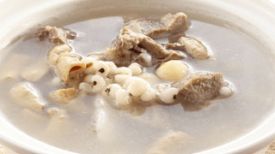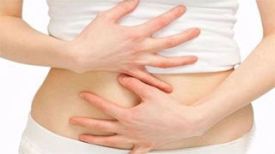
01
What is good for hair to eat
Every woman doesn't want oily hair, and every man doesn't want to become bald Therefore, hair care is very important. Next, the editor will analyze the reasons for hair deterioration and what foods are good for hair. Hopefully, this article will be helpful to you.
02
Why does hair become oily
There are many reasons for excessive sebum in hair, and it may be due to the secondary parasitism of fungi such as Pityrosporum ovalis and Propionibacterium acnes on the basis of excessive sebum overflow, or an increase in oil fatty acids on the skin surface. In addition, excessive sebum overflow may also be related to genetic factors, neurological and psychiatric disorders, endocrine disorders, metabolic abnormalities, etc. There are also some chemical stimuli, such as shampoo, excessive hair washing, poor hygiene habits, and the breakdown of sweat and lipid deposits, which have a certain impact on the occurrence and development of this disease.
03
Why is bald
There are many factors that can cause baldness in humans, and each factor is different. If hair loss occurs locally and gradually becomes bald with the entire head falling off, it is considered to be a symptom of generalized alopecia progressing from alopecia areata, which is related to poor rest and high mental stress. It is considered to be caused by the gradual disappearance of hair follicles in the scalp area. If baldness gradually falls off from the forehead and the sideburns on both sides disappear, eventually leading to hair loss, it is considered to be related to excessive secretion of male hormones in the body, and it is considered to be caused by the loss of hair follicle growth structure due to male hormones. Congenital hair loss is caused by genetic factors that prevent hair follicles in the scalp from producing normal hair roots and growing hair.
04
What is good for hair to eat
1. Salmon: Because salmon is rich in omega-3 fatty acids, vitamin B12, iron, and is also a source of high-quality protein for us. Essential omega-3 fatty acids can support scalp health. If lacking, it can lead to dry scalp and give people an ugly appearance. What should vegetarians do? Please supplement your daily diet with flaxseed (sesame oil), which is a good plant-based omega-3 fatty acid.
2. Nuts: Eating nuts regularly is beneficial for hair health. Brazilian nuts are the best source of selenium. The most important mineral for maintaining scalp health. Walnuts are rich in alpha linolenic acid and omega-3 fatty acids, which help improve your hair quality and are also a source of abundant zinc. Cashew nuts, almonds, and walnuts are all recommended foods. Therefore, the above-mentioned foods should be regularly included in your diet to maintain your health status.
3. Spinach: Spinach is the best source of vitamin A and vitamin C. Vitamin C is a recognized antioxidant nutrient that can easily defeat free radicals. It also has the function of maintaining normal secretion of sebaceous glands, helping hair follicles produce sebum, making hair more tough and shiny, and effectively delaying hair aging. Spinach is rich in carotenoids, protein, iron, calcium, and other substances that contribute to healthy hair.
4. Legumes: Legumes can help increase hair toughness and reduce hair breakage. Rich plant protein can improve the problem of hair splitting and easy breakage, and increase hair toughness and elasticity. Legumes are rich in plant protein, such as soybeans, which have a protein content of over 35%.
5. Raisins: Raisins are rich in iron, which can improve the speed of hemoglobin production, facilitate the delivery of nutrients from the blood to organs and tissues, and provide more motivation for hair.
6. Tomatoes: Tomatoes contain the anti-aging antioxidant lycopene, which is beneficial for both skin health and keeping hair moisturized and shiny.
7. Carrots: Carrots contain a large amount of vitamin A, which can promote sebum formation and have a natural regulating effect on scalp health.


